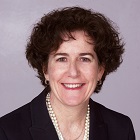Fourteen years ago a desperate plea for help turned into Safe Families for Children, an organization that provides families with volunteer hosts who can care for children on a short-term basis. Now, with support from LISC and it’s Pay for Success program, Safe Families will not only expand geographically, but will also increase how many families can find support.
In the beginning, it was just Dave Anderson. In 2003, while working as the head of a foster care agency, he received a desperate plea from a mother in distress asking for help. Dave and his wife agreed to take care of the woman’s children for a few weeks while she got on her feet. That act turned into an organization - Safe Families for Children - which today provides parents and children with a volunteer host family who will take care of children, on a short-term basis, when the child is not in physical danger. Safe Family’s goal is to reunite children with families, based upon the concept of neighbors helping neighbors.
Today, Safe Families for Children has a presence in over 100 cities in the US and others around the world, including 14 in the United Kingdom. More than 28,000 children have been hosted since 2003 with 92% of children returning back to their home or a family member.
Safe Families is now poised to expand geographically and serve more families, once their Pay for Success (PFS) plans are implemented. Earlier this year, LISC selected Safe Families to scale up their program, using funding from the federal government’s Social Innovation Fund.
LISC and Safe Families are currently talking to government officials in nine different states about implementing a PFS model. Under PFS, investors provide up-front funding to scale up programs that have a proven track record. The investors get repaid when the programs meet goals that are set at the beginning. In the case of Safe Families, those goals will likely include keeping children out of the foster care system.
State foster care systems are under increasing stress because of the opioid crisis. It is estimated that the number of youth in foster care has increased by eight percent from 2012 to 2015, with child welfare officials citing parental substance abuse as a reason for removing children from families in 32 percent of cases. Safe Families provides child welfare officials with an additional tool that is an alternative to overburdened foster care systems, when the children are not in danger of being harmed. Parents are then free to address issues such as unemployment, drugs or alcohol rehabilitation, family violence, illness or incarceration.
Anderson (who was awarded an Ashoka fellowship in 2008) and his team know that adding new PFS projects that Safe Families will need to increase their internal capacity to handle the larger volume. With support from LISC, Safe Families recently added a finance specialist to their senior team. They also recently upgraded their IT systems so they can better interface with government data systems and have plans to develop an app that will allow staff, volunteers and parents to manage their relationships and follow-up.
With PFS, Safe Families will be increasing their collaboration with child welfare agencies to keep kids safe and families intact. These efforts will bolster the organization’s hundreds of partnerships with local churches and thousands of volunteers across the country. In communities facing a foster care crisis, help can’t come soon enough.
 ABOUT THE AUTHOR
ABOUT THE AUTHOR
Terry Gillen, Director, Pay For Success
Terry is responsible for coordinating the work of LISC’s Pay for Success team. Prior to joining LISC, Terry worked for the City of Philadelphia, as director of the Office of Federal Affairs and as executive director of the Redevelopment Authority. She also served as policy director for the Pennsylvania Department of Community and Economic Development.